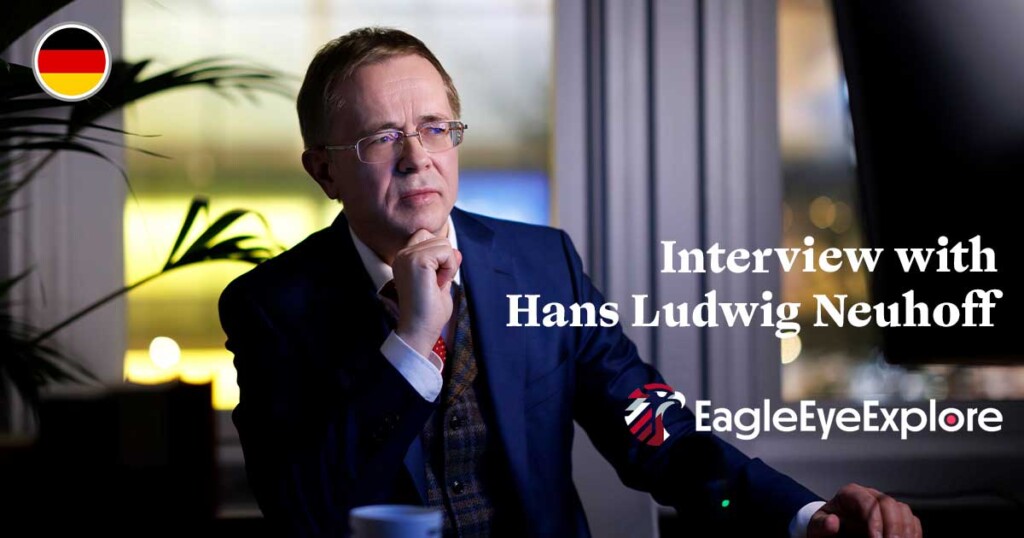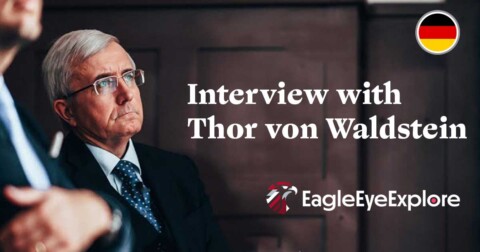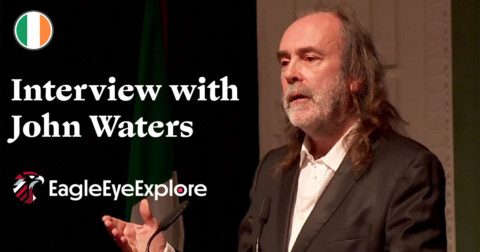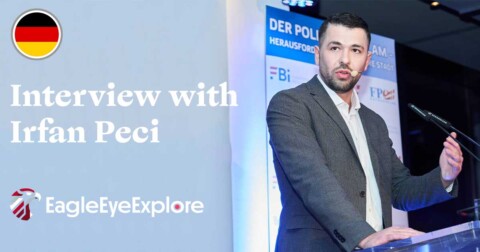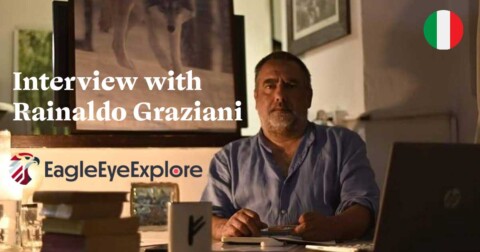That Europe and the United States, on the brink of a new world order, cannot remain neutral or indifferent regarding the outcome of Germany’s elections—which will determine the composition of the Bundestag’s lower house and the name of the new chancellor—is evident from the recent support given to the “ostracized” Alternative for Germany (AfD) by the new U.S. administration and traditionally conservative official Budapest. At the same time, the old, shaken EU elites are resorting to familiar arguments, trying to persuade voters that supporting AfD is tantamount to supporting fascism. To explore who might gain or lose votes from the “right-wing enemy” argument, considering the broader geopolitical context and the shift in U.S. foreign policy, as well as the challenges facing German voters and established parties, we spoke with Hans Ludwig Neuhof, a Member of the European Parliament from AfD.
“Indeed, AfD is now aligned with the new American strategy of affirming its own position while recognizing the positions of others in a multipolar world order. Opposition to Donald Trump could lead Europe’s still-ruling parties to misjudge reality and become marginalized. However, as a rule, new trends from the U.S. eventually spill over into Europe. If that weren’t the case, the West would be divided,” Neuhof explained.
In which direction are the poll results moving regarding AfD’s ratings?
There are predictions hovering around 25%. It is certain that the number of votes will double compared to the previous elections. More and more people are realizing that cartel parties have no answers to the major questions and challenges of our time and, in the worst cases, do not even acknowledge reality. Our program, on the other hand, aligns with reality.
How much has the support of Elon Musk and Viktor Orbán influenced the rise in Alternative for Germany’s ratings?
We were indeed very pleased with the support of Elon Musk and Viktor Orbán. Orbán himself has long been slandered. But we hope that will soon come to an end. Musk, on the other hand, enjoys great popularity in Germany, primarily as an investor and manufacturer of electric cars. The current attempts to discredit him do not seem very convincing.
Alice Weidel has won over Germans, even those hesitant about supporting the party itself, with sympathy as a future chancellor. How do you explain that?
Alice Weidel is a young, modern, and highly qualified woman. Her CV is international. As a trained economist, she is qualified in this field and thus stands in stark contrast to our current Minister of Economy, who, incidentally, is a children’s book author.
Protesters on the streets of Germany, upset over the opening of the migration debate (Merz – Alternative), have consistently insisted on anti-fascism. Aren’t the analogies between a security issue like migration and fascism rather strained?
Exactly. But I fear this is more evident from abroad than to most German journalists. Anti-fascism is an anti-democratic combat concept that Stalin used to suppress his opponents. The GDR even called its wall the “Anti-Fascist Protective Wall.” In this spirit, the term is now arbitrarily weaponized against anyone who thinks differently. It distorts reality, relying on a positive emotional effect, and serves to divert attention from its proponents’ intellectual helplessness and ideological emptiness.
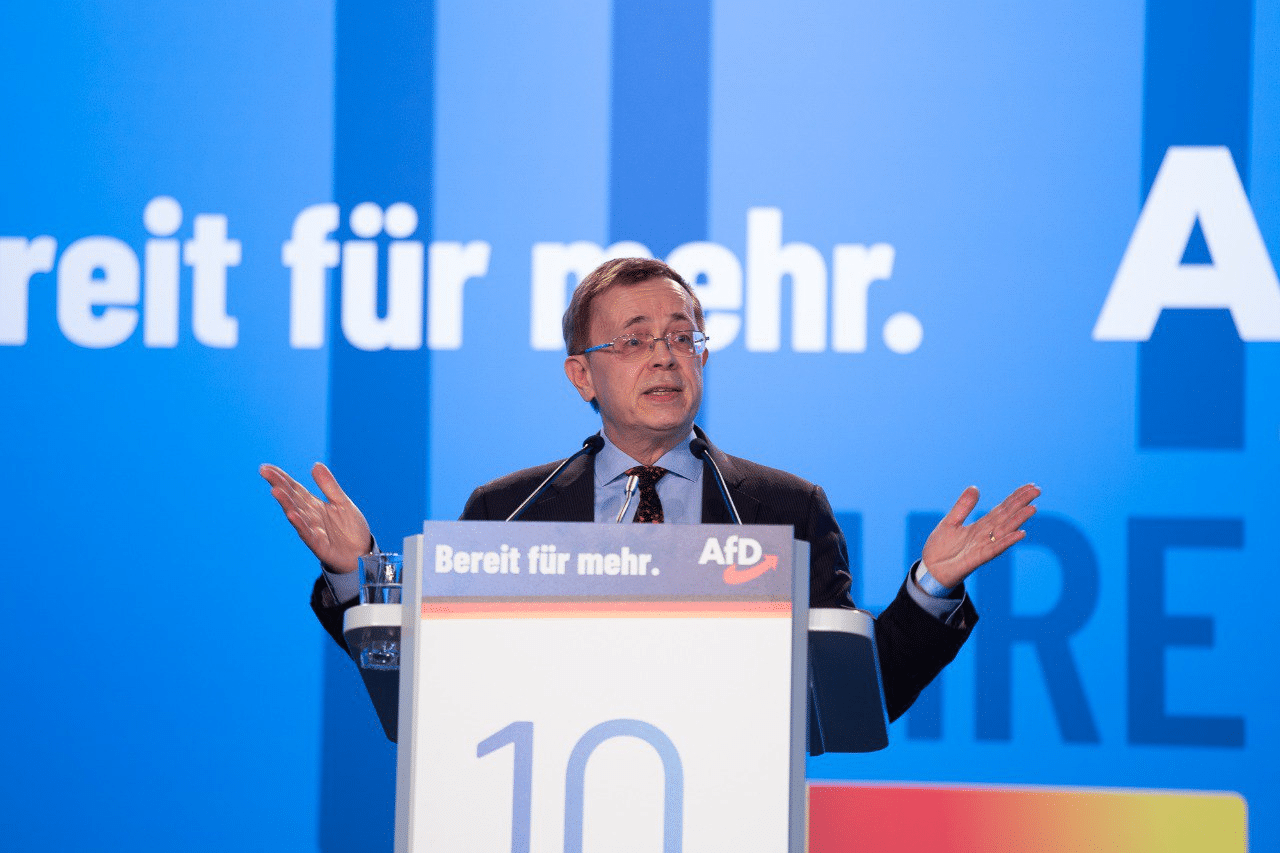
Given that established parties exclude the possibility of a coalition with AfD, thus questioning the will of voters as sovereigns, what do you think the electoral arithmetic might look like?
Merz knows that political change can only happen with our help, but he hesitates to take that step for fear that the CDU might fracture. Therefore, a center-left coalition of the CDU with the red-green bloc is looming. This leaves the conservative camp divided and powerless, effectively betraying the majority of voters.
To what extent has the ruling coalition understood the warning issued at the Munich Security Conference that attempting to replicate the Romanian scenario in Germany could lead to alienation from the United States?
Although I should be prepared for every one of their missteps, I was once again surprised by how deeply the denial of reality runs within the current German political elite. They refused to believe what Vance told them. In psychology, this is called repression. But they will soon realize that the whole world is now watching them closely, which will make them more cautious. Right now, they are in shock. The image of “Putin’s enemy” no longer holds much value. If I were a therapist, I would try to gently lead them into reality. But as a politician, I doubt we have that much time left.
How prepared is the EU to face the fact that neoliberalism’s time has run out?
I prefer to talk about globalism, whose ideological core is boundless “cosmopolitanism.” Since 1991, the West—specifically the United States and Europe as its junior partner—has believed that it can expand its power and market without limits. The so-called Western values were expected to be accepted worldwide. This misconception must urgently be replaced by a new paradigm—namely, protecting one’s own: one’s family, nation-state, and culture.
What could be the consequence of excluding Europe from negotiations to end the conflict in Ukraine?
First and foremost, I wish the United States and Russia great success in the negotiations so that the senseless killing can finally stop. Once peace is established, we must urgently restore our relations with Russia. Europe needs a new peace order that naturally includes—and has always included—Russia. We have repeatedly emphasized this from the very first day of the war.
What role does Russia envision for Europe in the new world order, and what role does America see for it?
The start of negotiations shows that, after its disastrous unipolar interventions, the United States is now placing the reality of a multipolar world order at the core of its foreign policy. However, what is far more important than what Russians and Americans think about Europe is the image and vision we have of ourselves. We must urgently work on that, and this is my central focus in Brussels.
How do you view the messages from the “Patriots for Europe” summit held in Madrid? Can we speak of a strong European right without the participation of Alternative for Germany?
Through Alice Weidel’s visit to Viktor Orbán in Hungary and the words of support from the U.S. government, AfD’s value has become evident to the outside world. Despite the differences among conservative forces in Europe, it is clear that they share common values: national sovereignty and the protection of Europe. Europe’s open borders have put these values at risk. Without AfD, there will be no strong European right.
The peoples of the Czech Republic, Serbia, and recently Georgia have faced complex political dilemmas. Is there an internal thread that connects these “people’s movements”?
I am not in a position to competently comment on Serbia’s internal situation. Generally speaking, we in AfD warn against interfering in the internal affairs of other countries. Such interference has caused significant harm in the past.
